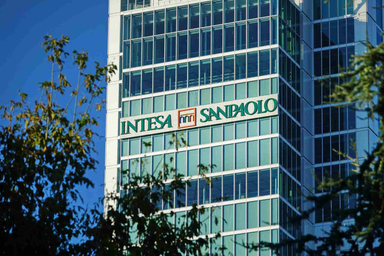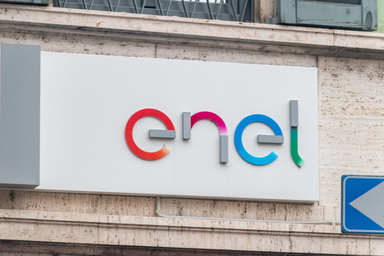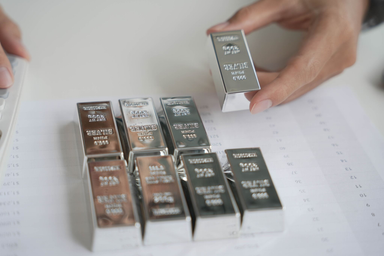Featured articles

DAX 40 continues to push to new highs
The DAX 40 sees six consecutive days of gains as the index pushes to new highs driven by risk-on sentiment
09:54, 12 January 2026

From Caracas to Wall Street: how the U.S.–Venezuela crisis could move markets
The start of the new year has marked a dramatic escalation in the United States’ confrontation with Venezuela.
08:53, 9 January 2026

Intel stock split: what it means for traders
Intel’s long history of stock splits reflects the company’s evolution through several major technology cycles, from early PC growth to data-centric expansion. With its most recent split taking place more than two decades ago, questions often arise about whether Intel may adjust its share structure again.
15:49, 19 December 2025

Renk stock forecast: FY2025 results, 2026 guidance update
Renk (R3NK) is a German defence supplier. On 5 March 2026 it reported FY2025 revenue of €1.37bn and adjusted EBIT of €230m, with FY2026 guidance above €1.5bn and a €6.68bn backlog. Past performance is not a reliable indicator of future results. Explore third-party R3NK price targets.
5 hours ago

Intesa Sanpaolo stock forecast: Record earnings, €2.3bn buyback
Intesa Sanpaolo, listed in Milan, reported €9.3bn 2025 net income and announced a €2.3bn buyback from July 2026 as the ECB kept the deposit rate at 2%. Past performance is not a reliable indicator of future results.
7 hours ago

BPER Banca stock forecast: Bank sell-off, BPSO merger vote
BPER Banca is an Italian bank listed in Milan; its shares fell amid a sharp European banking sell-off and attention has turned to the 12 March 2026 BPSO merger vote. Past performance is not a reliable indicator of future results. Explore third-party BPE price targets and technical analysis.
7 hours ago

Enel stock forecast: €53bn 2026–2028 plan
Enel is an Italian integrated utility listed on Borsa Italiana; its shares reflect the €53bn 2026–2028 Strategic Plan and Italy’s February 2026 Energy Decree. Past performance is not a reliable indicator of future results. Explore third-party ENEL price targets and technical analysis.
7 hours ago

US 500 forecast: US–Israel conflict, oil above $81
The US 500 tracks 500 large US-listed companies and reflects broader equity market conditions, including geopolitical tensions in the Middle East, oil prices above $81, and ongoing Federal Reserve policy uncertainty. Past performance is not a reliable indicator of future results.
10 hours ago

Germany 40 forecast: US-Iran strikes, oil supply concerns
Germany 40 (DE40) reflects the performance of Germany’s leading blue-chip companies and is trading amid broader European equity weakness following reports of US and Israeli strikes on Iran and rising energy supply concerns. Past performance is not a reliable indicator of future results.
10 hours ago

US assets outperform as geopolitical shock reshapes markets
The US dollar has emerged as the preferred safe haven as investors retreat from risk assets amidst the rising geopolitical uncertainty.
10 hours ago

US Tech 100 forecast: Middle East tensions, futures lower
The US Tech 100 (Nasdaq 100 index) – which tracks leading non-financial companies on the Nasdaq – has edged lower as US index futures fell over 1% amid Middle East tensions and continued scrutiny of major AI-focused stocks. Past performance is not a reliable indicator of future results.
12:40, 3 March 2026

US assets outperform as geopolitical shock reshapes markets
The US dollar has emerged as the preferred safe haven as investors retreat from risk assets amidst the rising geopolitical uncertainty.
10 hours ago

Silver price forecast: Middle East tensions, firmer US Dollar
Silver (XAG) has pulled back after a rally linked to Middle East tensions, trading within an $88-95 range as a firmer US dollar and profit-taking followed a move back above $90/oz. Past performance is not a reliable indicator of future results.
10 hours ago

Gold price forecast: US–Israel strikes, oil supply concerns
Gold trades near multi-week highs after U.S.–Israel strikes on Iran, with safe-haven flows, firm oil prices and sizeable futures gaps shaping recent price action in bullion markets. Explore third-party Gold price targets. Past performance is not a reliable indicator of future results.
11:40, 3 March 2026

Market Mondays: Energy Shock, Risk-Off Sentiment and a Shifting Tech Narrative
Risk-off flows spread through markets as the escalation of attacks in the Middle East increases the risk premium.
13:02, 2 March 2026

US assets outperform as geopolitical shock reshapes markets
The US dollar has emerged as the preferred safe haven as investors retreat from risk assets amidst the rising geopolitical uncertainty.
10 hours ago

Market Mondays: Energy Shock, Risk-Off Sentiment and a Shifting Tech Narrative
Risk-off flows spread through markets as the escalation of attacks in the Middle East increases the risk premium.
13:02, 2 March 2026

EUR/JPY forecast: Latest PMI & CPI release
EUR/JPY represents the exchange rate between the euro and the Japanese yen, reflecting relative economic performance, central bank policy expectations and shifts in global capital flows. Explore third-party EUR/JPY forecasts and technical analysis.
11:00, 27 February 2026

NVIDIA ignites risk appetite as markets close the week on a stronger footing
NVIDIA's strong results drive sentiment higher as investors had began to doubt the AI narrative.
11:43, 26 February 2026

Solana price prediction: Alpenglow upgrade and on-chain activity
Solana is a layer-1 blockchain token trading within a broader crypto rebound, with current focus on its planned Alpenglow upgrade and reported high on-chain activity levels. Explore third-party SOL price targets and technical analysis.
10 hours ago

Ethereum price prediction: Derivatives volume and ETF flows
Ethereum is a decentralised blockchain network whose native token, ETH, is trading near $1,930 as derivatives volumes outpace spot activity and spot Ethereum ETFs report mixed flows in recent months. Past performance is not a reliable indicator of future results.
11:53, 3 March 2026

Ripple price prediction: 2025 SEC ruling impact
Ripple (XRP) is a digital asset used in cross-border payment networks, trading after a 2025 US federal court ruling clarified that retail XRP sales on public exchanges are not securities. Explore third-party XRP price targets and technical analysis.
16:01, 2 March 2026

Bitcoin price prediction: Iran tensions, Fed watch
Bitcoin trades in the mid-$60,000s after briefly nearing $68,000 following reports on Iran’s leadership, with price action also shaped by Federal Reserve expectations and spot Bitcoin ETF flows. Explore third-party BTC price targets and technical analysis.
13:29, 2 March 2026
